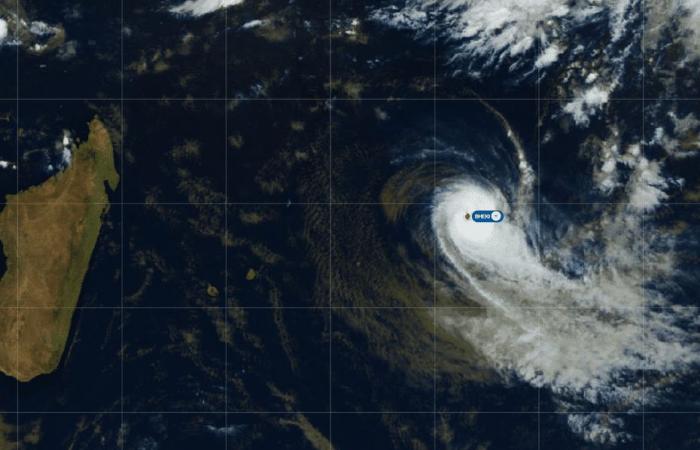Bheki continues to get closer to the Mascarenes, but also to weaken. Its intensity will therefore be much lower when it passes near Reunion during the week. Jacques Ecormier, former chief forecaster at Météo France, wants to reassure the situation and emphasizes that Bheki should pass close to us at the stage of a weak tropical depression.
Published on November 18, 2024 at 1:42 p.m.,
updated November 18, 2024 at 1:51 p.m.
This Monday, November 18, 2024 at 10 a.m., tropical cyclone Bheki was 1,470km away in the East-Northeast sector of Reunion Island, presenting no danger for our island.
On the other hand, in Rodrigues, weather conditions are expected to deteriorate overnight from Tuesday to Wednesday, as the system approaches.
However, Reunion will not at all be affected by the same conditions as it approaches Bheki during the week. And for good reason: since last night, the cyclone system has already started to weaken, Météo France Indian Ocean highlighted in its bulletin this Monday morning.
This weakening will be even more “marked in the next 24 to 48 hours“.
“It is therefore a weakened system which should circulate near the Mascarenes on a trajectory oriented to the southwest.”
Weather France Indian Ocean
This situation is also confirmed by the former chief forecaster at Météo France, Jacques Ecormier. Invited to the Réunion newspaper La 1ère this Monday afternoon, he was keen to reassure the Réunion Islanders, especially after rather alarming information circulated last weekend.
“Don't be afraid! There is a system approaching, which is weakening, and when this system impacts the weather conditions in Reunion, it will no longer be a cyclone, it will no longer be a storm, it will at most a tropical depression.
Jacques Ecormier, former chief forecaster Météo France Réunion
In other words, this weakening tropical cyclone will have lost most of its intensity in a few days, even before reaching our island.
Details from Jacques Ecormier on Réunion La 1ère:
Details from meteorologist Jacques Ecormier
•
©Reunion the 1st
According to Jacques Ecormier, it could even be that the rains are very minimal. Because Bheki would have to pass north of Reunion for the island to benefit from precipitation from its cloud mass, the latter being concentrated to the south of the system, he explained.
But, at this stage, there is only “30% chance“that this is the trajectory adopted by Bheki, according to Jacques Ecormier. There is a greater probability that the system will pass to the south of the island, in which case “there will be a little watering on the Grand Brûlé“, even to the East, smiles the meteorologist.
These are the forecasts at the start of the week. To know more exactly where Bheki will go, it will be “24 hours in advance“, continues Jacques Ecormier, emphasizing that the system was very weak at the time of its passage near Reunion, preventing us from defining more precisely what to expect in terms of trajectory.
“But rest assured, there will be no wind, except a little trade wind of 70 to 80 km/h, a slightly stronger swell of around 3m, with waves of 6m. And rain if the system passes to the North.
Jacques Ecormier, former chief forecaster Météo France
Finally, regarding the formation of an intense tropical cyclone in the month of November, at the very beginning of the cyclone season, this is absolutely not unprecedented, according to the expertise of Jacques Ecormier. “It's not early“, recalls the former forecaster at Météo France from 2003 to 2021. This situation is happening again”approximately every ten years“.
“The climate is not always the same, it changes“, insists Jacques Ecormier, now retired. It turns out that Bheki benefited from favorable conditions and warm seas, thus evolving to the stage of intense tropical cyclone previously.
“When the system arrives towards Mauritius and Rodrigues, the sea is much cooler and the system weakens because it no longer has fuel”
Jacques Ecormier, former chief forecaster Météo France
It also recalls the formation of the intense tropical cyclone Anaïs in October 2012. The system finally broke up more than 600km north of the island, but had “was beneficial for Reunion because it brought rain“.
Substantial precipitation which even complicated the task for the participants of the Grand Raid that year. “It had rained a lot, the paths were slippery, there had been 50% abandonments, and Kilian Jornet was happy to arrive at the Redoute“, recalls Jacques Ecormier.






